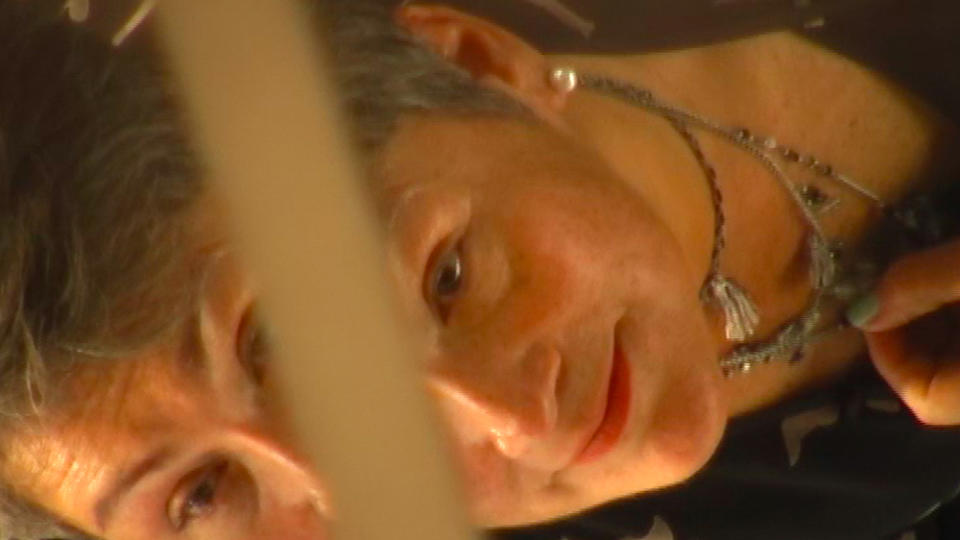Sanfic Highlights Chilean Talent, Unveils Features in Competition (EXCLUSIVE)
- Oops!Something went wrong.Please try again later.

Focusing on Chile’s large cinematic prowess, Sanfic’s Chilean Film Competition is set to hone in on national filmmaking and a few promising co-productions from budding and established Latin American talent.
Efforts backed by industry leaders Roberto Doveris, Alicia Scherson and Mexico’s Inti Cordera illustrate that Chilean filmmakers are pulling in further support by relaying poignant, far-reaching narratives.
More from Variety
Sanfic Lab Presents Fiction, Doc Projects from Both New and Seasoned Talent (EXCLUSIVE)
Sanfic Productoras Lab Welcomes Emerging Female Producers from Latin America (EXCLUSIVE)
The Chilean Film Competition was announced by the Sanfic 18, Santiago International Film Festival which will run Aug. 14-21 as a hybrid event.
Highly-anticipated projects include “Villa Olímpica,” produced, in part, by Cordera, who’s previously partnered with the likes of National Geographic and Discovery to bring engaging documentary series to the fore, and fantasy feature “Piedra Noche,” which reunites ingenious Argentine filmmaking duo Santiago Loza (“Extraño”) and Iván Fund (“Hoy No Me Tuve Miedo”)
Young talents bowing their first feature attempts are also represented in projects like Fernando Saldivia Yañez’s “Sobre Las Huellas del Tiempo,” and Agustina San Martín’s “Matar a la Bestia.”
Culturally significant documentaries that chronicle environmental and political themes mix with fantastic fiction works that carry an air of mystery and the supernatural, creating a well-curated and nuanced roundup. Films that question the concept of home and tradition are also keenly represented, doling out solidarity in a world significantly isolated by the pandemic and ever-increasing uncertainty.
Speaking to the final selections, Sanfic artistic director Carlos Nuñez noted, “There are ten films, three world premieres, two Latin American and five national projects, with diverse themes that connect with different audiences. In this edition we celebrate the vitality of national productions with films of great quality and artistic contribution.”
“This year the focus of our festival is on national productions because we believe it’s necessary to once again highlight the importance of Chilean cinema and continue to be a window for national filmmakers who have seen their work directly affected by the pandemic,” added Francisca Florenzano, executive director of CorpArtes Foundation.
A brief breakdown of the participating titles:
“Me Gustaría Que Vivieras Mi Juventud De Nuevo” Chile. Director: Nicolás Guzman
A masterclass in empathy, this film from Nicolás Guzman (“If You Listen Carefully”) explores the intimate ties that bind. It follows Victoria and José, who hold two seemingly opposite personas, as they chisel away their differences to find astounding similarities during shared moments at a film school where José studies and Victoria works as a secretary.
The project reunites Guzmán with producers Roberto Doveris of independent Chilean production house Niña Niño films, and Alicia Scherson. The trio previously worked on Guzman’s “Victima Potencial,” a clever vampire tale for the internet age. Highly-regarded Chilean director, Doveris, won the Grand Jury Prize at the Berlinale in 2016 for his first film, “Plantas,” which landed its Chilean premier at Sanfic in 2019. Scherson, regarded as an integral part of new Chilean cinema, notably directed 2005’s “Play” and Rutger Hauer in “Il Futuro.”
Francisca Soto Rojas shares production credits.

Courtesy of Sanfic
“Vieja Viejo” Chile. Director: Ignacio Pavez
This inter-generational drama centers on Carmen and Jorge, a couple who suffer from the effects of age and declining health, set to affect them significantly as the days pass. In tandem, short clips made by their granddaughter surface and allow a glimpse into societal and familial thoughts on aging that lead to the protagonist’s persistent decline and overwhelmingly solemn state of neglect.
Written and directed by Ignacio Pavez (“Maleza”), the film is produced by Pavez and Marc Nicolet of Santiago-based Gallo Negro Producciones as well as Ivo Malinarich and Maximiliano Bolados of Naira Films.
“El Efecto Ladrillo” Chile. Directors: Carola Fuentes, Rafael Valdeavellano
In an intense follow-up to their profound depiction of Pinochet-era economic policies “Chicago Boys,” Carola Fuentes and Rafael Valdeavellano return with a deeper look into what effects those policies had on the populace. The film follows unlikely allies Mariana and Ramiro as they navigate a burgeoning revolution in a country tasked with shaking down the neoliberal regime for the chance at a future equitable for all those that inhabit it.
During the unrest that led to the election of a new president and the drafting of a reworked Constitution, the pair craft honest representations of the problems through the eyes of someone who has suffered them and one whose come to see the harms they inflict on the most vulnerable among us. Clips from the film were included in the Works-in-Progress screenings at Toronto’s HotDocs Fest in May, the film is produced by Chile’s Fuentes-Valdeavellano-founded La Ventana Cine.
“Sobre Las Huellas del Tiempo” Chile. Director: Fernando Saldivia Yañez
An ambitious first-feature effort, Saldivia Yañez produces, writes, and directs this multi-generational story of a gaucho family from Magallanes that strives to keep traditions alive despite an ever-evolving global landscape. Through rustic depictions of pastoral work, the film provides an intimate commentary on environmental ties to the land and the memories of the past that helps sustain them.
Enrolled in an MFA at The School of the Art Institute of Chicago, his first short “La Tejedora de Raíces,” poetically portrayed the Indigenous Yaghan art of grass weaving and was screened at Big Sky Documentary Film Festival and the Seattle International Film Festival.
“Matar a la Bestia” Chile, Argentina, Brazil. Director: Agustina San Martin
In her feature film debut, writer-director Agustina San Martín (“Monster God”) delves into the ominous disappearance of a young boy and the journey of his seventeen-year-old sister, Emilia, who travels to an eerie and remote religious border town for answers. Faced with local lore surrounding mythical beasts and confronting her past, the narrative promises a jaunt through reality and the mystic, all at once.
The film celebrated its world premiere at TIFF and earned San Martín the best film APPLAA award at the Mar del Plata Film Festival. Production goes, in part, to Argentina’s Diego Amson, who previously directed Matías Lucchesi’s “Ciencias Naturales,” a coming-of-age drama that won best feature film in selection at Berlinale’s Generation strand and a special mention at San Sebastian. Co-production credits to Lucila de Arizmendi, Florencia Rodríguez, Dominga Ortúzar, Aline Mazzarella, Matheus Peçanha and Santiago Carabante.
“Villa Olímpica” Chile, México, Argentina. Director: Sebastián Kohan
Argentina’s Sebastián Kohan (“Buscando a Panzeri”) deciphers the diaspora as he documents children of the exile generation. Housed in Mexico City’s Villa Olímpica in the 70s, the children grew fond of their place in the world. As the dictatorships in South America ended, they were forced to follow their parents’ roots back to a place wholly unfamiliar and begin anew, often feeling as displaced as the generations before them.
The effort is a co-production between Mercedes Córdova and Valeria Forster at Buenos Aires outfit Brava Cine (“E Il Cibo Va”), the famed Inti Cordera, general director of Mexico City’s La Maroma Producciones (“Crisis 2020”), and Santiago-based Villano Producciones (“Zamudio, Perdidos en la noche”) founded by Juan Pablo Sallato and Juan Ignacio Sabatini.
“La Riqueza del Mundo” Chile, México, Argentina. Director: Simón Farriol
Writer-director Simón Farriol crafts the narrative of a farmer turned militiaman fighting for Chile during its war for independence. He wakes up deaf on the battlefield surrounded by fallen soldiers and then wanders home, joining up with a horseman who lost his sight. An obstacle greater than those they cross on the journey back is their declining will to live, tested by the wilds of nature and the trappings of their own minds as they recollect what they’ve witnessed.
Along with Farriol, production credits go to Ivo Malinarich and Maximilliano Bolados of Chile’s Naira Films, as well as Alejandro Ugarte, founder of Santiago-based Infractor Producciones, focusing on independent arthouse filmmakers.
“Cazadora” Chile. Director: Martín Duplaquet
Director Martín Duplaquet (“Dios Me Libre”) adapts this thrilling script by Valeria Hofmann and Antonio Luco, which takes place in the mountains. There, a mother, Emilia, and her teenage son, Mateo, have survived a global epidemic by living off the grid and hunting rabbits. After a mysterious woman attempts to steal their jeep, the pair wind up entrenched in a tense and deceiving relationship with the would-be thief, Rena. Production credits to Duplaquet alongside Francisca Barraza, content director and executive producer at Santiago-based Funky Films.
“La Picada” Chile, Costa Rica. Director: Felipe Zúñiga
Felipe Zúñiga presents his first feature-length effort, a story about Rosmeri, the last resident of La Picada, a town destroyed by the ash from constant volcanic eruptions. She has a tumultuous yet fond relationship with the volcano as it gives her the energy to resist those encroaching on her, insisting she leaves her home.
A co-production between Costa Rica’s Alejandra Vargas at Noche Negra Producciones, Federico Lang, director at Costa Rica’s Caramba Cine and Alejo Crisóstomo, executive producer at Chile’s Ceibita Films, a production company committed to culturally-relevant Latin American cinema.
“Piedra Noche” Argentina, Chile, Spain. Director: Iván Fund
In his adaptation of Santiago Loza’s original script, Argentine director Iván Fund relates the trauma-fuelled tale of Sina, a woman who travels to the coast to sell her summer home a year after losing her son to the sea. As she and her friends pack up the house, traumatic emotions peak, and Greta’s husband admits to seeing a mythical creature that local rumor has hinted at, leading them on a new journey entirely.
Co-written by Argentine writer Martín Felipe Castagnet, the film is a co-production between Fund, Laura Mara Tablon, founder of Argentina’s Rita Cine, and Buenos Aires-based Insomnia films, co-produced by Santiago-based Globo Rojo Films.
Best of Variety
Sign up for Variety’s Newsletter. For the latest news, follow us on Facebook, Twitter, and Instagram.

